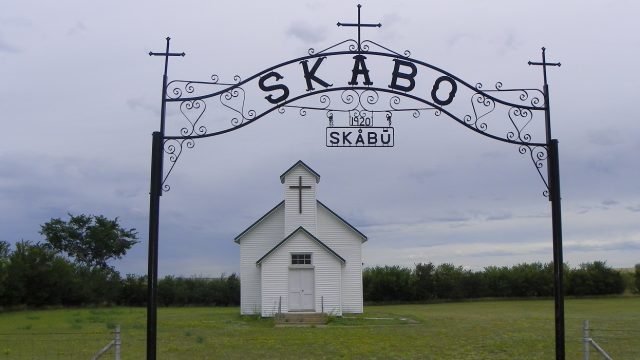John Andrist: A Promise Made Is A Debt Unpaid

There are strange things done in the midnight sun by the men who moil for gold;
The Arctic trails have their secret tales that would make your blood run cold;
The Northern Lights have seen queer sights, but the queerest they ever did see
Was that night on the marge of Lake Lebarge I cremated Sam McGee.
That’s the prologue to an old essay in verse that has entranced folks for generations.
In the 8-minute story Sam travels north to prospect for gold in the arctic. He is constantly cold, and almost freezing as his death approaches on a dog sled in the frozen tundra.
So he extracts a promise from his companion, who is telling the story in the first person, that he will cremate Sam’s body when his life ceases.
It happens, and these intriguing words come from the companion: “Now a promise made is a debt unpaid,” as he begins to ponder how to fulfill the strange last request.
[mks_pullquote align=”right” width=”300″ size=”24″ bg_color=”#ffffff” txt_color=”#000000″]It is for this that families will travel thousands of miles to reconnect each time the journey ends for one of their own, wanting desperately to remember and be remembered, knowing that ultimately it cannot happen.[/mks_pullquote]
This all came to mind when we gathered last week to bury the ashes of my wife’s twin sister, Eileen. She died from cancer earlier this year, leaving instructions to cremate her remains and bury the ashes in the lonely country cemetery amid the graves of her parents.
So her four siblings and a couple of family spouses journeyed back home to fulfill her request.
I don’t think we thought of it as a debt unpaid as much as a self-imposed obligation . . . something we had to do . . . not for Eileen, but for ourselves.
We had travelled more than 5,000 person miles and picked the coldest day of the summer to gather at Skabo Cemetery south of Crosby.
We planted, watered, and fertilized three mums near the headstone, and Jim, pastor and brother, put together a brief 15-minute service to accompany placement of the urn.
And as we shivered in the pelting wind-swept rain, trying to keep our umbrellas from carrying us airborne we sang each verse of “Children of the Heavenly Father.”
It was not a unique experience. There are hundreds of small rural cemeteries, each with a few dozen burials, that lie in vacant church yards all across North Dakota.
We need them, not for the dead, but for that sense that we are still connected to those we have known and loved — and to the dust from where we have come and all must one day return.
In my prime this township and its people nurtured Eileen and my wife. We were married in that church, now badly decayed, waiting itself for the decision to return it to dust.
Nearby is the huge Tweed farm and grove, silent now, but once alive with perhaps a couple of hundred community friends who came each summer for an ice cream social.
How can it be? Once home to so many, now replaced by a handful of families and giant combines capable of doing everything those throngs once did.
It is for this that families will travel thousands of miles to reconnect each time the journey ends for one of their own, wanting desperately to remember and be remembered, knowing that ultimately it cannot happen.
But relishing life, precious and short as it is, nevertheless is important to us.
Make that essential. A promise made is a debt unpaid.




